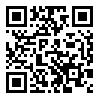
Journal of Emergency Health Care
Formerly known as: International Journal of Medical Investigation

Volume 11, Issue 4 (12-2022)
J Emerg Health Care 2022, 11(4): 21-27 |
Back to browse issues page
Download citation:
BibTeX | RIS | EndNote | Medlars | ProCite | Reference Manager | RefWorks
Send citation to:



BibTeX | RIS | EndNote | Medlars | ProCite | Reference Manager | RefWorks
Send citation to:
Beygi Z, Giski Z E, Nasab F R. The Relationship Between Irrational Beliefs And Sense Of Agency With Mathematical Self-Efficacy Beliefs In Sirjan Azad University Students. J Emerg Health Care 2022; 11 (4) :21-27
URL: http://intjmi.com/article-1-943-en.html
URL: http://intjmi.com/article-1-943-en.html
Department Of Psychology, Sirjan Branch, Islamic Azad University, Sirjan, Iran.
Abstract: (2467 Views)
Students are the future generation of society, and their irrational beliefs and sense of agency can spread to society, especially if it is related to the problem of mathematical self-efficacy. Therefore, this research was conducted with the aim of determining the relationship between irrational beliefs and sense of agency with mathematical self-efficacy in students of Sirjan Azad University. The research was of the correlation type and the students were studying in the second semester of the academic year 1400-401 of the researched society. The sample was 351 students who were selected using the available method. The data were obtained by Jones (1969), mathematical self-efficacy of Betz and Hackett (1983), Rutter's sense of agency (1966). The data was analyzed by Pearson's correlation coefficient statistical method and SPSS software version 22. Data analysis showed that there is a significant relationship between irrational beliefs and sense of agency with math self-efficacy in students of Sirjan Azad University. Also, the results showed that there is a significant difference between male and female students in terms of irrational beliefs, sense of agency (p<0.001).
References
1. 1. mahdavi najmabadi z, kadivar p, arjmandnia aa, poushaneh k. The mediating role of working memory and mathematical anxiety in predicting spatial visual processing based on mathematical self-efficacy and creativity. The Journal Of Psychological Science. 2021;20(98):269-82.
2. Cargnelutti E, Tomasetto C, Passolunghi MC. How is anxiety related to math performance in young students? A longitudinal study of Grade 2 to Grade 3 children. Cognition and Emotion. 2017;31(4):755-64.
3. Moore JW, Cambridge V, Morgan H, Giorlando F, Adapa R, Fletcher P. Time, action and psychosis: using subjective time to investigate the effects of ketamine on sense of agency. Neuropsychologia. 2013;51(2):377-84.
4. Piro M, Zeldow PB, Knight SJ, Mytko JJ, Gradishar WJ. The relationship between agentic and communal personality traits and psychosocial adjustment to breast cancer. Journal of Clinical Psychology in Medical Settings. 2001;8(4):263-71.
5. Cavazzana A, Penolazzi B, Begliomini C, Bisiacchi PS. Neural underpinnings of the ‘agent brain’: new evidence from transcranial direct current stimulation. European Journal of Neuroscience. 2015;42(3):1889-94.
6. David N, Obhi S, Moore JW. Sense of agency: examining awareness of the acting self. Frontiers Media SA; 2015. p. 310.
7. Bandura A, Freeman WH, Lightsey R. Self-efficacy: The exercise of control. Springer; 1999.
8. Hackett G, Betz NE. An exploration of the mathematics self-efficacy/mathematics performance correspondence. Journal for research in Mathematics Education. 1989;20(3):261-73.
9. فهیمه ک, مجید ص, مسعود ک. رابطه حمایت معلم ادراک شده و عملکرد تحصیلی درس ریاضی: نقش میانجی گر انگیزه درونی، اضطراب و خودکارآمدی ریاضی. 2021.
10. Aoyagi K, Wen W, An Q, Hamasaki S, Yamakawa H, Tamura Y, et al. Modified sensory feedback enhances the sense of agency during continuous body movements in virtual reality. Scientific reports. 2021;11(1):1-10.
11.Ashornjad, Kadivar, Parvin, Hijazi, Naqsh. Multilevel analysis of psychological well-being of adolescents through individual agency, school culture and family support. Applied Psychology Quarterly. 2019;12(3):357-74.
12. bakhshayesh, expectation The relationship between perfectionism and irrational beliefs in working women and housewives in Yazd city. New educational ideas. 2011;19(7):9-28.
13. Flett GL, Hewitt PL, Cheng WMW. Perfectionism, distress, and irrational beliefs in high school students: Analyses with an abbreviated Survey of Personal Beliefs for adolescents. Journal of Rational-Emotive & Cognitive-Behavior Therapy. 2008;26(3):194-205.
| Rights and permissions | |
 |
This work is licensed under a Creative Commons Attribution-NonCommercial 4.0 International License. |



